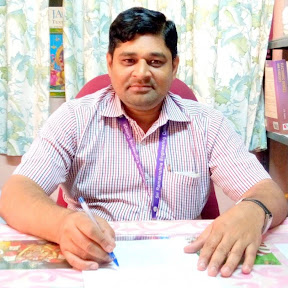

Biomedical engineers analyze and design solutions to problems in biology and medicine, with the goal of improving the quality and effectiveness of patient care. Biomedical engineers design instruments, devices, and software; bring together knowledge from many technical sources to develop new procedures or conduct research needed to solve clinical problems.Biomedical engineers are employed in industry, in hospitals, in research facilities of educational and medical institutions, in teaching, and in government regulatory agencies. They often serve a coordinating or interfacing function, using their background in both engineering and medical fields. In industry, they create designs where an in-depth understanding of living systems and technology is essential.Biomedical Engineering covers recent advances in the growing field of biomedical technology, instrumentation, and administration. Contributions focus on theoretical and practical problems associated withThe development of medical technology;The introduction of new engineering methods into public health;Hospitals and patient care;The improvement of diagnosis and therapy;Biomedical information storage and retrieval


Biomedical engineers analyze and design solutions to problems in biology and medicine, with the goal of improving the quality and effectiveness of patient care. Biomedical engineers design instruments, devices, and software; bring together knowledge from many technical sources to develop new procedures or conduct research needed to solve clinical problems.Biomedical engineers are employed in industry, in hospitals, in research facilities of educational and medical institutions, in teaching, and in government…Readmore
Welcome to the Department of Biomedical Engineering!Biomedical Engineering is a multidisciplinary field of engineering addressing health related technologies. We, at Sri Ramakrishna Engineering College train students to develop careers in medical electronics, rehabilitation engineering, molecular diagnostics, medical data science and therapy design. Laboratories and faculty provide key infrastructure to learn the state of the art in these areas. Opportunities for collaboration with Sri Ramakrishna Hospitals, Coimbatore, a sister organization under…Readmore

B.E., M.E., Ph.D
Let SREC be a stepping stone of your success.
VISION
To develop into a center of merit in Biomedical Engineering, providing quality education, with orientation towards research and innovative development of health care products that will significantly enhance the quality of life.
MISSION
To develop into a centre of merit in Biomedical Engineering, providing quality education, with orientation towards research and innovative
development of health care products that will
significantly enhance the quality of life.
The graduates of our programme will:
I. Accomplish professional success with promise to their social responsibilities, both as individuals and in team environments.
II. Work resourcefully in core areas of Biomedical Engineering.
III. Productively opine Biomedical Engineering to cosset Industries, Hospitals and Government Agencies and as Entrepreneurs.
IV. Espouse and look up their technical competence through lifelong learning, that comprise entering and succeeding in an advanced degree program in the fields such as engineering, science, business, or medicine for sustainable development of Self, Society and Environment.
PO1: Engineering Knowledge: Apply knowledge of mathematics, natural science, computing, engineering fundamentals and an engineering specialization as specified in WK1 to WK4 respectively to develop to the solution of complex engineering problems.
PO2: Problem Analysis: Identify, formulate, review research literature and analyze complex engineering problems reaching substantiated conclusions with consideration for sustainable development.
PO3: Design/Development of Solutions: Design creative solutions for complex engineering problems and design/develop systems/components/processes to meet identified needs with consideration for the public health and safety, whole-life cost, net zero carbon, culture, society and environment as required.
PO4: Conduct Investigations of Complex Problems: Conduct investigations of complex engineering problems using research-based knowledge including design of experiments, modelling, analysis & interpretation of data to provide valid conclusions.
PO5: Engineering Tool Usage: Create, select and apply appropriate techniques, resources and modern engineering & IT tools, including prediction and modelling recognizing their limitations to solve complex engineering problems.
PO6: The Engineer and The World: Analyze and evaluate societal and environmental aspects while solving complex engineering problems for its impact on sustainability with reference to economy, health, safety, legal framework, culture and environment.
PO7: Ethics: Apply ethical principles and commit to professional ethics, human values, diversity and inclusion; adhere to national & international laws.
PO8: Individual and Collaborative Team work: Function effectively as an individual, and as a member or leader in diverse/multi-disciplinary teams.
PO9: Communication: Communicate effectively and inclusively within the engineering community and society at large, such as being able to comprehend and write effective reports and design documentation, make effective presentations considering cultural, language, and learning differences
PO10: Project Management and Finance: Apply knowledge and understanding of engineering management principles and economic decision-making and apply these to one’s own work, as a member and leader in a team, and to manage projects and in multidisciplinary environments.
PO11: Life-Long Learning: Recognize the need for, and have the preparation and ability for
i) independent and life-long learning
ii) adaptability to new and emerging technologies
iii) critical thinking in the broadest context of
technological change.
Graduates of Biomedical Engineering at the time of graduation will be able to
PSO1: Integrate engineering and biological principles to develop and improve biomedical devices and processes for
better healthcare.
PSO2: Use modern tools to address real-world challenges in imaging, Bio-Signal and Medical Data Analysis.
PSO3: Apply biomechanics and tissue engineering to develop solutions for rehabilitation, tissue regeneration, drug
delivery and personalized medicine.